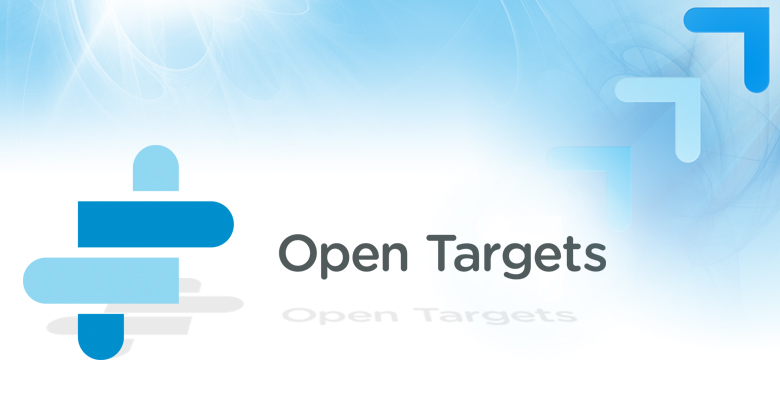
Open Targets announced today that Takeda has joined its pioneering public-private collaboration to transform drug discovery by improving the success rate for developing new medicines. Takeda is a global, R&D-driven pharmaceutical company with expertise in oncology, gastroenterology (GI) and central nervous system (CNS) disease that will complement the offerings of GSK, Biogen, the Wellcome Trust Sanger Institute and the European Bioinformatics Institute (EMBL-EBI), and build on the initiative’s success.
Open Targets is a unique, precompetitive partnership between companies and not-for-profit research institutes. It was set up to systematically improve the identification and prioritisation of drug targets for safe and effective medicines. The freely available Open Targets Platform (www.targetvalidation.org) makes it easy for researchers working in many disciplines to identify and prioritise therapeutic targets for new medicines. Underscoring its utility for drug discovery, the platform features over 26,000 targets associated with more than 9,000 diseases. The resource has had over 82,000 visits since its launch.
Approximately 90 percent of compounds entering clinical trials never make it to the market. This is an extremely costly and time-consuming process, which often fails because the biological target chosen is not well understood.
To address this challenge, Open Targets combines the skills, knowledge and technologies of its partner organisations, offering a critical mass of expertise that does not exist in any single institution. Large-scale genomic experiments (Sanger Institute) and computational techniques (EMBL-EBI) developed in the public domain are blended with formal pharmaceutical R&D approaches to identify causal links between targets, pathways and diseases. This enables the partners to systematically identify drug targets, and prioritise them for further exploration.
“Takeda is committed to reverse translation using human genetics and genomics to discover and validate the next generation of targets to innovative medicines,” says John Wagner, Senior Vice President and Head of Translational Research and Early Clinical at Takeda. “The collaboration with Open Targets – using its comprehensive informatics platform and the accessibility of a vast array of latest innovative experimental platforms for rapid assessment and validation of potential targets – will accelerate Takeda’s capabilities to identify and validate human targets with robust scientific support. Takeda brings deep scientific expertise in neuroscience, GI, and oncology to the collaboration, well-aligned with the priorities of Open Targets.”
We believe that target identification and prioritisation can be improved, but no one entity can do it alone
“We believe that target identification and prioritisation can be improved, but no one entity can do it alone,” says Jeff Barrett, Director of Open Targets. “Takeda’s insight, expertise and skills will enhance our ability to crack a very difficult problem – how to find the best targets for new medicines, effectively and efficiently, and share them openly with the research community.”
Open Targets covers all aspects of human health and disease. The cornerstone of the collaboration is an agreement that experimental data and information gathered within the initiative will be shared openly, to benefit the broader scientific community.
Open Targets welcomes new interest from companies and academic institutions that wish to accelerate the discovery of drug targets through open innovation.
Discover More
Takeda Pharmaceutical Company Limited
Takeda Pharmaceutical Company Limited is a global, research and development-driven pharmaceutical company committed to bringing better health and a brighter future to patients by translating science into life-changing medicines. Takeda focuses its R&D efforts on oncology, gastroenterology and central nervous system therapeutic areas plus vaccines. Takeda conducts R&D both internally and with partners to stay at the leading edge of innovation.
New innovative products, especially in oncology and gastroenterology, as well as Takeda’s presence in Emerging Markets, are currently fuelling the growth of Takeda. More than 30,000 Takeda employees are committed to improving quality of life for patients, working with Takeda’s partners in health care in more than 70 countries.
European Bioinformatics Institute (EMBL-EBI)
The European Bioinformatics Institute (EMBL-EBI) is a global leader in the storage, analysis and dissemination of large biological datasets. EMBL-EBI helps scientists realise the potential of ‘big data’ by enhancing their ability to exploit complex information to make discoveries that benefit humankind.
EMBL-EBI is at the forefront of computational biology research, with work spanning sequence analysis methods, multi-dimensional statistical analysis and data-driven biological discovery, from plant biology to mammalian development and disease.
We are part of the European Molecular Biology Laboratory (EMBL), an international, innovative and interdisciplinary research organisation funded by over 20 member states and two associate member states, and are located on the Wellcome Genome Campus, one of the world’s largest concentrations of scientific and technical expertise in genomics.
GSK
GSK, one of the world’s leading research-based pharmaceutical and healthcare companies, is committed to improving the quality of human life by enabling people to do more, feel better and live longer.
The Wellcome Trust Sanger Institute
The Wellcome Trust Sanger Institute is one of the world’s leading genome centres. Through its ability to conduct research at scale, it is able to engage in bold and long-term exploratory projects that are designed to influence and empower medical science globally. Institute research findings, generated through its own research programmes and through its leading role in international consortia, are being used to develop new diagnostics and treatments for human disease.
To celebrate its 25th year in 2018, the Institute is sequencing 25 new genomes of species in the UK.
Biogen
At Biogen, our mission is clear: we are pioneers in neuroscience. Biogen discovers, develops and delivers worldwide innovative therapies for people living with serious neurological and neurodegenerative diseases. Founded in 1978 as one of the world’s first global biotechnology companies by Charles Weissman, Heinz Schaller, Kenneth Murray and Nobel Prize winners Walter Gilbert and Phillip Sharp, today Biogen has the leading portfolio of medicines to treat multiple sclerosis; has introduced the first and only approved treatment for spinal muscular atrophy; and is focused on advancing neuroscience research programs in Alzheimer’s disease and dementia, neuroimmunology, movement disorders, neuromuscular disorders, pain, ophthalmology, neuropsychiatry, and acute neurology. Biogen also manufactures and commercializes biosimilars of advanced biologics.
